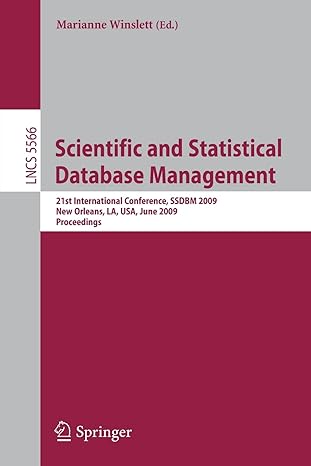Question
In JAVA! public static boolean isOperand(char x) ( 2 pt) takes a symbol as argument and returns true if the symbol is an operand otherwise
In JAVA!
public static boolean isOperand(char x) ( 2 pt)
takes a symbol as argument and returns true if the symbol is an operand otherwise it returns false ( 2 pts)
public static int operPrecedence(char oper) (2 pts)takes an operator as argument and returns a precedence value for the operator ( 3 pts)
precedence value is 1 for + or -
precedence value is 2 for * or /
precedence value is 3 for $
public static boolean precedence(char top, char symb) ( 6 pts)Takes two arguments, the symbol at the top of the operator stack and the symb read from the infix string and determines the precedence based on the following rules:
When a ( is scanned, no operator is popped off and the ( is pushed on the stack. The consequence is that the operators prior to this ( will not be compared with the operators after this (. E.g. precedence(op,()=false;
The first operator after the ( must be pushed on the stack on top of the (. precedence((,+)=false.
When ) is scanned, all the operators within the parentheses on the stack must be popped off. precedence(op,))=true, except op=( because precedence((,+)=false
When ) is scanned, the corresponding ( should be popped off
This method uses the operPrecedence method
Step by Step Solution
There are 3 Steps involved in it
Step: 1

Get Instant Access to Expert-Tailored Solutions
See step-by-step solutions with expert insights and AI powered tools for academic success
Step: 2

Step: 3

Ace Your Homework with AI
Get the answers you need in no time with our AI-driven, step-by-step assistance
Get Started


